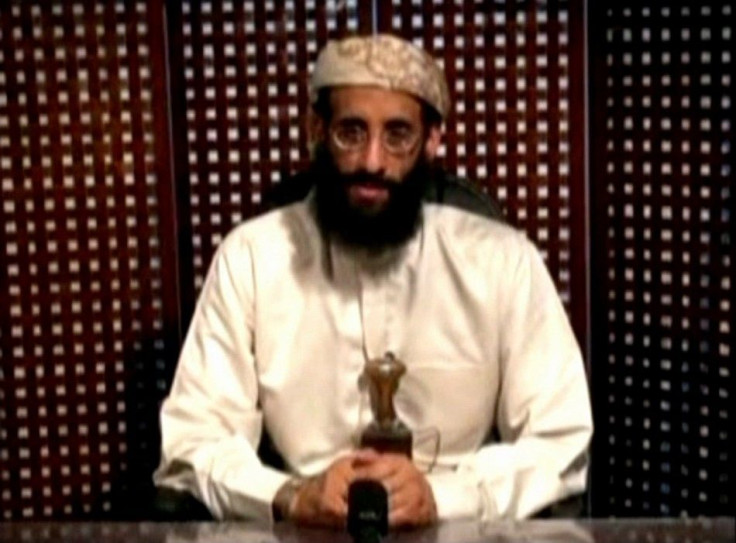Boston Marathon Bombings: The Deadly Legacy Of Anwar Al-Awlaki

An FBI investigation into the activities of Dzohkar and Tamerlan Tsarnaev, the two young Chechen men who perpetrated the April 15 bombings at the Boston Marathon that killed three people and injured more than 260, were partially influenced by Anwar al-Awlaki, a radical American-born Muslim cleric who later moved to Yemen.
The New York Times reported that Dzokhar, 19, the surviving Tsarnaev brother, told law enforcement officials that they were inspired by Internet sermons delivered by Awlaki, who was killed by U.S. drones September 2011. However, it is unclear if the Tsarnaevs had any direct contact with Awlaki during their path toward radicalism.
(Tamerlan was shot to death by police in an intense gunfight soon after the Boston bombings.)
Dkzohar also told FBI investigators that he and his brother wanted to strike American targets in retaliation for the U.S. military’s wars in Iraq and Afghanistan. But he also insisted that he and his brother were not part of a wider terror network and operated alone.
Aside from Awlaki’s fiery sermons, Dzokhar told FBI officials that he and his brother learned how to construct pressure-cooker bombs from an online magazine called Inspire, published by al Qaeda in the Arabian Peninsula. The man believed to be behind Inspire, a U.S. citizen named Samir Khan, was killed in the same drone stroke that ended the life of Awlaki in the fall of 2011.
Awlaki, who was born in New Mexico to Yemeni parents, eventually rose to become a senior operative in the Yemeni branch of al Qaeda. His death sparked some controversy for the Barack Obama administration given that U.S. military drones were being used to kill American citizens (apparently for the first time in history).
Awlaki first came to the FBI’s attention as long ago as 1999 due to his association with known Muslim militants. In the wake of the 9/11 attacks, he was questioned by the FBI over his association with some of the hijackers who plowed an aircraft into the World Trade Center, killing thousands.
Awlaki allegedly came into contact with the 9/11 hijackers while serving as an imam at a mosque in Falls Church, Va.
Awlaki departed the U.S. for good in 2002 ending up in Yemen in 2004, where he was jailed for 18 months in connection with an alleged al Qaeda plot to kidnap a U.S. military attaché, as well as a Shiite teenager. Awlaki’s detention was reportedly encouraged by U.S. authorities who put pressure on their Yemeni allies at the time.
Awlaki was released from prison, apparently due to intervention by members of his tribe, but it is not clear if the U.S. approved his freedom or not.
Thereafter, the firebrand preacher showed up on the Internet, exhorting young Muslims around the world, including in the West, to fight the U.S., which he claimed was at “war with Islam." Many of his sermons appeared on YouTube (since removed), and he even had his own blog and Facebook page.
It was later revealed that Major Nidal Malik Hasan, the army psychiatrist who killed 13 people in Fort Hood, Texas, in November 2009, had been exchanging emails with Awlaki.
“Nidal Hassan is a hero,” Awlaki wrote on his blog. “He is a man of conscience who could not bear living the contradiction of being a Muslim and serving in an army that is fighting against his own people.”
Thereafter, U.S. intelligence intensified its efforts to find Awlaki (though, ironically, as a U.S. citizen, his inflammatory words were still protected by the First Amendment).
Meanwhile, Awlaki's notoriety simply grew.
In December 2009, after Umar Farouk Abdulmutallab, a young Nigerian man, attempted and failed to destroy an airliner approaching the Detroit airport, he confessed to FBI agents that he had met with Awlaki in Yemen and discussed “martyrdom and jihad” with him. He also claimed Awlaki directed him to perform the bombing.
“[Awlaki] had been on the radar all along, but it was Abdulmutallab’s testimony that really sealed it in my mind that this guy was dangerous and that we needed to go after him,” Dennis C. Blair, then director of national intelligence, told the New York Times.
In the months following the drone strikes that killed Awlaki, his 16-year-old son and Khan, their relatives in the U.S. filed lawsuits against the Pentagon and CIA, again raising the legal quandary of the U.S. military killing American citizens.
“The killings violated fundamental rights afforded to all U.S. citizens, including the right not to be deprived of life without due process of law," the legal complaint stated.
In a book titled “Dirty Wars: The World Is a Battlefield” by investigative journalist Jeremy Scahill, which detailed the targeted assassination of Awlaki, President Obama was apparently upset by the accidental death of Awlaki’s teenage son, Abdurrahman. However, the New York Daily News reported that Obama had authorized the killing of the elder Awlaki as early as February 2010 under the clause that Awlaki presented an imminent threat to the U.S.
© Copyright IBTimes 2025. All rights reserved.





















